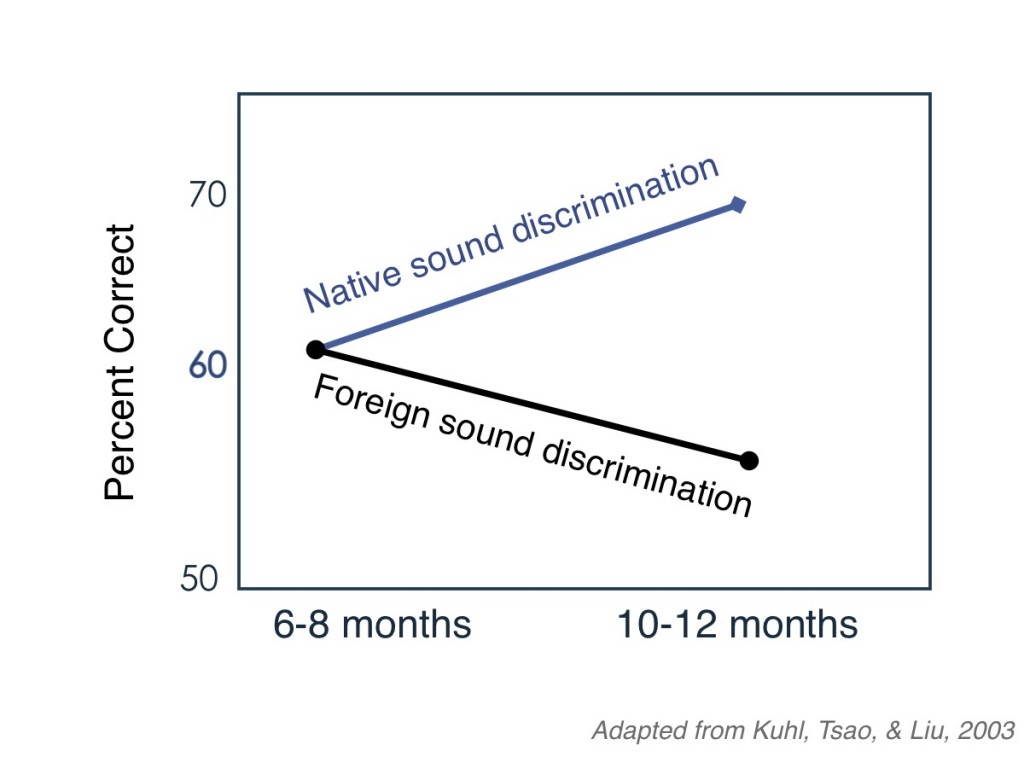
Very young infants can hear the differences among all sounds of all languages of the world. This means that an infant from an English-speaking household can not only hear the differences between the sounds of English, but also between the different sounds of Hindi, Japanese, and all other languages. On the graph above, the blue line represents the babies’ ability to discriminate native language sounds. The black line represents the babies’ ability to discriminate foreign language sounds, or sounds that are not present in their native language. You can find the baby’s age on the bottom of the graph. You will see that at 6 to 8 months of age, the babies’ percent correct score is the same for native language and for foreign languages. This means that up until 6 to 8 months of age, they are equally good at discriminating native and foreign language sounds. At this age, infants are “citizens of the world”!
Between 6 and 12 months of age, infants’ ability to hear the difference between foreign language sounds decreases. At the same time, their ability to hear the differences between the sounds of their native language increases. On the graph above, you will see that by 10 to 12 months of age, babies are much better at discriminating native language sounds (blue line) compared to foreign language sounds (black line). By the end of the first year of life, babies have become “native language specialists”! They focus on the language sounds that they hear most often. This is a good thing! Infants become very efficient in listening to the speech sounds that are relevant in their everyday lives.
-
- Categorization
- grouping together the same sounds, and distinguishing them from other sounds
- Phoneme
- the smallest unit of speech (a sound)
- Sensitive period
- a time in development when the brain is especially ready to learn a skill
- Speech perception
- listening to speech
- Speech production
- speaking
- Statistical learning
- computing how likely it is that certain events (in this case sounds or syllables) occur compared to others